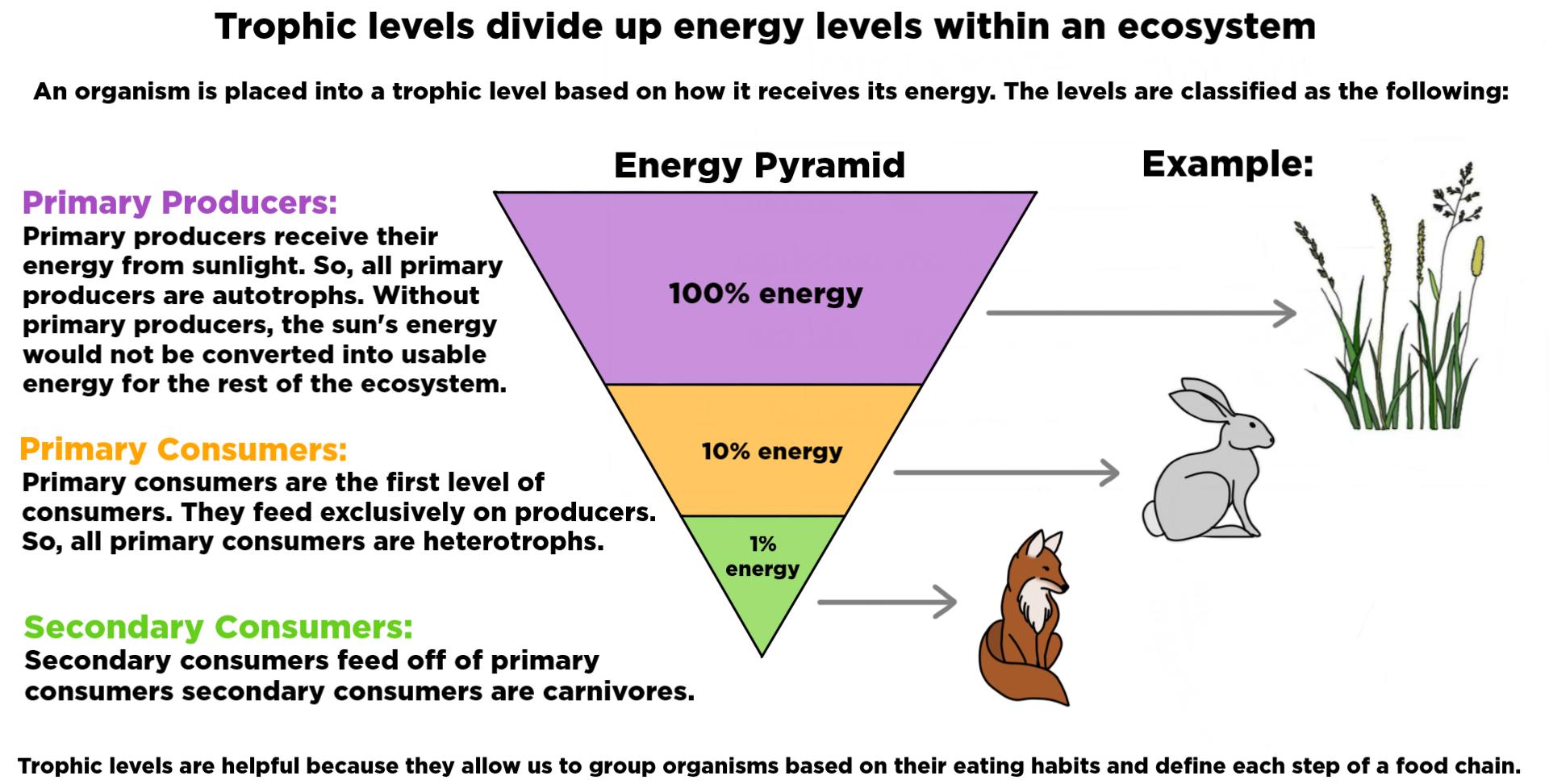Video Lesson Transcript Biology Diagrams The energy produced by the green plants is then transferred to a higher trophic level in the ecological food chain. B. 2nd Trophic Level (Primary Consumers) Primary consumers are the group of organisms that feed on producers and thus are heterotrophic. These organisms completely depend on producers like plants and phytoplankton for their energy

Learn what a trophic level is and how it relates to the food chain in an ecosystem. Find out the five main trophic levels and their characteristics, from primary producers to apex predators, with examples of each. Definition of the Food Chain and Trophic Levels. A trophic level can be imagined as a step in a pyramid, with groups stacked up representing organisms and their role in the ecosystem. This trophic pyramid helps organize the various interactions between those organisms. From one trophic level to the next, only 10 percent of energy is converted to biomass.

Definition, Examples, & Facts Biology Diagrams
The second trophic level in all food chains is an herbivore or omnivore close omnivore An animal that eats both plants and meat. called a primary consumer. Mosquito larvae are the primary All food chains start with the producer, which occupies the bottom of the food chain and thus is at the first trophic level. All food chains end with the apex consumer, whose trophic level depends on its prey. For example, it is at the third trophic level if it consumes a primary consumer. If it feeds on a tertiary consumer, it is at the fourth

Ecosystem - Trophic Levels, Food Chains, Interactions: Together, the autotrophs and heterotrophs form various trophic (feeding) levels in the ecosystem: the producer level (which is made up of autotrophs), the primary consumer level (which is composed of those organisms that feed on producers), the secondary consumer level (which is composed of those organisms that feed on primary consumers

Trophic Level (Food Chain & Web): Definition & Examples ... Biology Diagrams
The trophic level of an organism is the position it occupies in a food web.Within a food web, a food chain is a succession of organisms that eat other organisms and may, in turn, be eaten themselves. The trophic level of an organism is the number of steps it is from the start of the chain. A food web starts at trophic level 1 with primary producers such as plants, can move to herbivores at Trophic Levels: The Layers of a Food Chain. Each step in a food chain corresponds to a trophic level, which represents a position in the sequence of energy transfer. Trophic levels help us categorize organisms based on their role in the ecosystem and the type of energy they consume. Here's a breakdown of the primary trophic levels: Each step or level of the food chain forms a trophic level. The autotrophs or the producers are the first at the trophic level. Thereafter, Primary consumers and Secondary Consumers follow. The last trophic level is that of the decomposers. These tropic levels help us understand the food chain and transfer of energy in various trophic levels.
